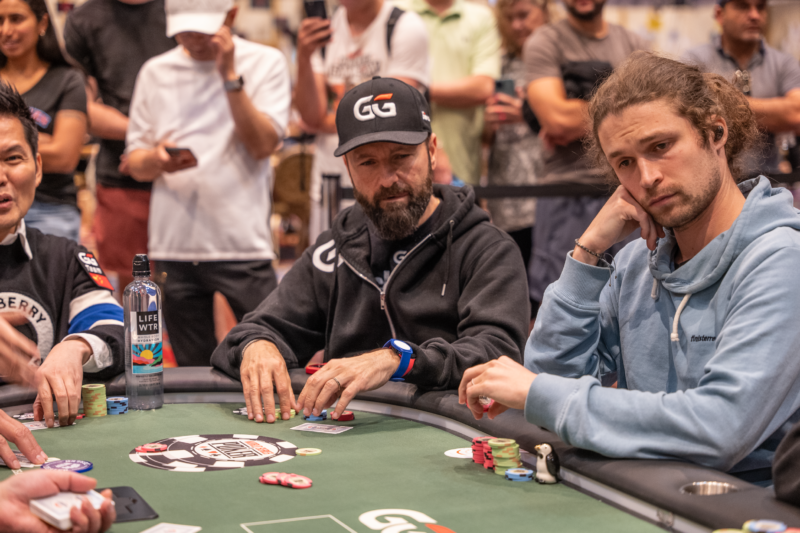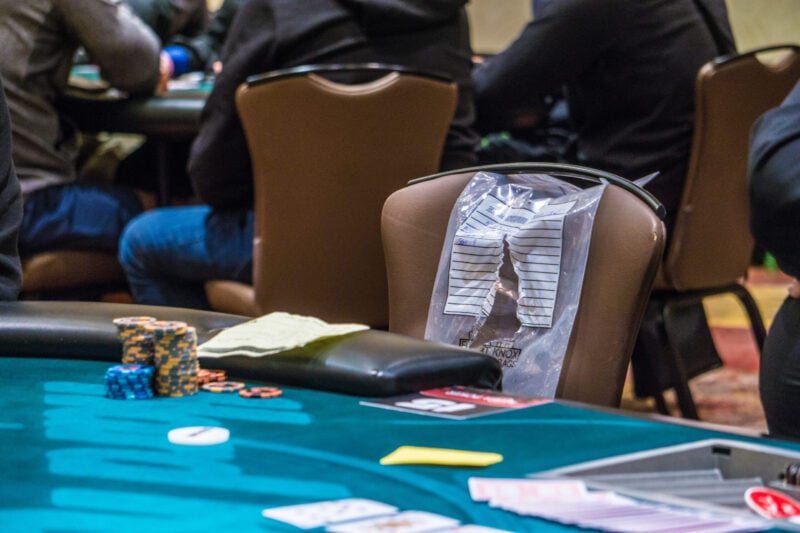Welcome to my three-part series on how to handle the pros at the World Series Of Poker. The WSOP is unlike any other series, and recreational players mix with serious pros more now than at any other time of the year, which can mean a lot of money for us pros. While there is no substitute for years of study and experience, I’m here to help you lose a lot less to the pros and have a lot better shot at a deep run during the WSOP this year.

While you may be a solid poker player, maybe even the best player in your home game, or even profitable in the cash games and tournaments at your local casino, let’s start with a simple truth – the pros are a lot better than you. Over a large sample size they will eat you up. But, over a smaller sample size, you have a real shot. That’s the great thing about poker.
And you can have a much better shot, and become a much better player, if you follow these simple tips. If you believe you have talent and can play with anyone, that’s great, confidence is important. Don’t let me take that from you. But smart players handle good players differently. You didn’t come to Vegas to butt heads with pros all day, you came to win. And that means playing more pots with the bad players that you can exploit and less pots with the good players who will give you trouble, even if you are as good as you think you are.
Avoid playing hands with good players
Even the best players in the world follow this rule. If you are an absolute killer, why would you want to get in coin-flip situations with other good players when you can just crush the weaker players? That’s what the pros do, and it’s what you should do too.
The pros will not give money away. If you flop a set against them, you won’t get paid. If you flop a flush draw, you will win a small pot or lose a big one much more often against a good player. It’s not cowardice, it’s smart poker. Play way more pots with the weak players and get that easier money without taking so much risk that you’ll go broke.
If you want to test yourself against the best, then use your tournament results, not the outcome of a few hands where anything can happen. Prove you can play by doing the same thing they do, preying on the weak, and doing it as well as they do.
This means not defending your blinds against strong players unless you have a good enough hand to make a proper reraise or a hand that can flop so well that you can win a monster pot or get away from it if the flop is only mediocre for you. Whatever you do, don’t play a big pot with a pro when you have a weak hand. If there is any danger that the pot will get too big for your hand, fold early and save those chips.
Position, position, position
If you are going to play a pot with a pro, make sure that you are last to act. This takes away a lot of the skill advantage they have and makes it much easier for you to control the size of the pot. It also helps you get a better feel for their hand strength. A pro on the button could have anything. But a pro who raised from early position is more likely to have a hand, and a pro who defended their big blind by simply calling is much less likely to have a monster.
Playing way more hands in position will also tell the pros that you know how to play, and they may start to avoid you. If they know that you understand how crucial position is, they’ll have more respect for your game. Your hand is not nearly as important as you think it is, and position is even more important than you imagine.
Small ball with deep stacks
If the stacks are deep, you really have to be careful about how big a pot you play. A great player will steal pots from you using deep stacked tactics that will be hard to counter, or they will use their skill to extract a lot of chips from you when they have a big hand.
If you are in position (did I mention how important position is) you can decide to take a round or two off and keep the pot a reasonable size. You can also keep the pot small with smaller bets. Small bets on the flop and turn are quite common these days, especially with serious pros, so they will respect those bets more than you might think and may even wonder if you are a pro they just don’t know yet.
Remember, playing small ball against a pro can also keep you in the game long enough to take advantage of some of the weaker players and get a feel for how the table is playing. If you think you are good enough to play the tournament, then you should think you are good enough to play with some caution and give that skill some time to work.
Aggressive with short stacks
When your stack gets below twenty big blinds, you have to use it or lose it. And by use it, I mean put some pressure on while you still can. That pro with sixty or eighty big blinds does not want to double you up if they can avoid it. Don’t give them a chance to outplay you on the flop, or out flop you, get the money in now or just fold.
Pros will avoid you if they know that you are going to shove all-in with a short stack. They’ll tend to only play when they have a hand that can call your all-in, because they follow the same advice I offered earlier. They avoid coin flip situations in tournaments where they are a huge favorite against the field and try to keep their variance low. You can use that to your advantage by applying pressure while you still have enough chips to do it, rather than blinding down to nothing and getting called when you finally get a hand you like.
Use the pros to your advantage
In my book Short Stack Ninja, there is a section on playing a stack that is below five big blinds. Most people just wait for a hand and shove all-in, but the pros don’t play this way at all. I don’t have space here to share the whole chapter, but there is one important point that will help when dealing with pros – they may work with you.
I know, it sounds odd. But it’s actually quite common. It’s called “implied collusion” and don’t let the name scare you, it’s not unethical in any way. Implied collusion simply means that you understand what your opponent is likely to do, and they know that you know this too and you are both making the play that is best for you, but which punishes other players.
Let’s look at a quick example. You have four big blinds in the small blind and you are dealt Ace-Nine suited. The action folds around to a strong player in middle position who raises to 2.1 big blinds. The button, a weaker player, calls. Now what do you do? If you go all-in, the pro will never fold, and will usually call, which will cause the weaker player on the button to call as well. This might seem good, but it’s not nearly as good as your other option.
If you reraise the minimum amount, to 3.2 big blinds, saving less than one big blind, it will be cheaper for the original raiser to reraise and chase out the button who will abandon the 2.1 big blinds they have in the pot. It opens up the betting for the raiser to raise whatever amount they think will cause the button to fold. Then you call, and you only have to beat one player to triple your stack, which is pretty good odds with a suited ace against a middle position opening range.
This is a play that most pros understand, and something you can use with them. In fact, it’s about the only time you should be happy that a pro is at your table.
Information is more valuable than you think
A common mistake, and the one that is the easiest for pros to exploit, is when players give away information in exchange for small amounts of equity. The easiest example is with bet sizing. At home, your local players may not always know how to exploit the information you give away with your bet sizes, but a pro at the WSOP will know exactly what to do with it, and you won’t like it.
If you bet smaller with one type of hand, and bigger with another, the pro will be watching. And they will not forget, because you have just labeled yourself as their favorite food. Remember when I talked about how pros avoid coin flips and situations where they might go broke? Well there is no better spot for them than when they know you will fold because of your bet sizing. Stealing the pot when they know you won’t put up a fight is a zero risk way to gain chips, so they are always on the lookout for it.
To combat this, you must play your entire range the same way. Any hand that you will raise, raise the same sizing. So don’t worry about your hand except to decide if you want to raise or not. Then, if you are going to bet or raise, think about what size would be best with your whole range. Treat it as if there is a rule that you can only bet one size in this exact situation, and you have to choose it now and then use that same size any time you want to bet in a similar spot for the rest of your poker career.
If you do this, betting the size you would always bet, they can’t use your bet sizing to abuse you. And if you also treat whether you will bet or not the same way, betting if you want to always bet in this spot or checking if you want to always check, you’ll stop most of the information leaks that are a recreational player’s downfall against strong pros.
In the next article, which I’ll publish in a few days, we’ll talk a lot more about how to hide information from the pros and play in a way that makes life much harder for them.


